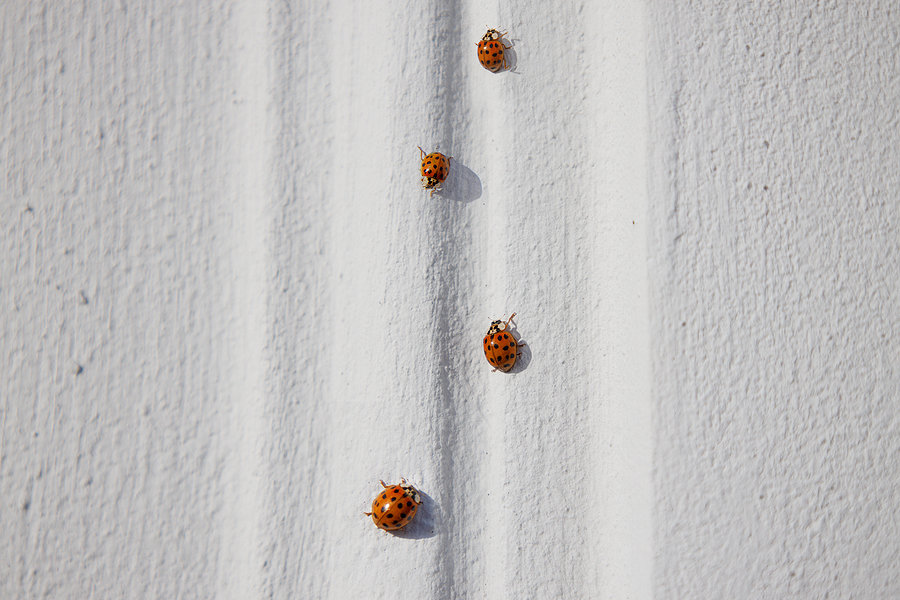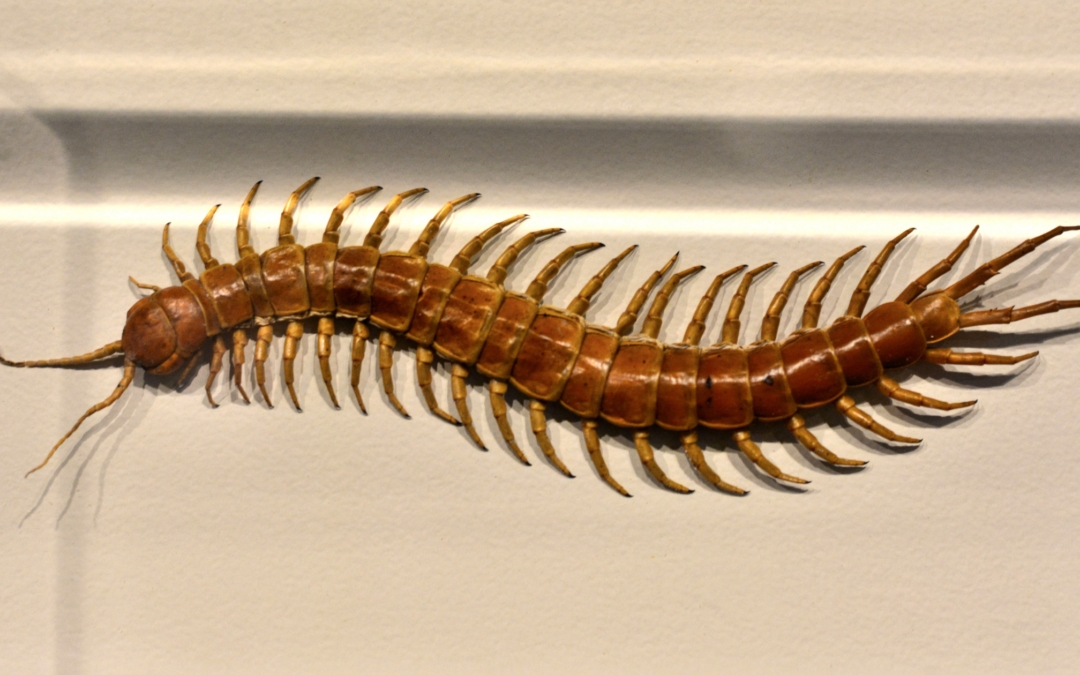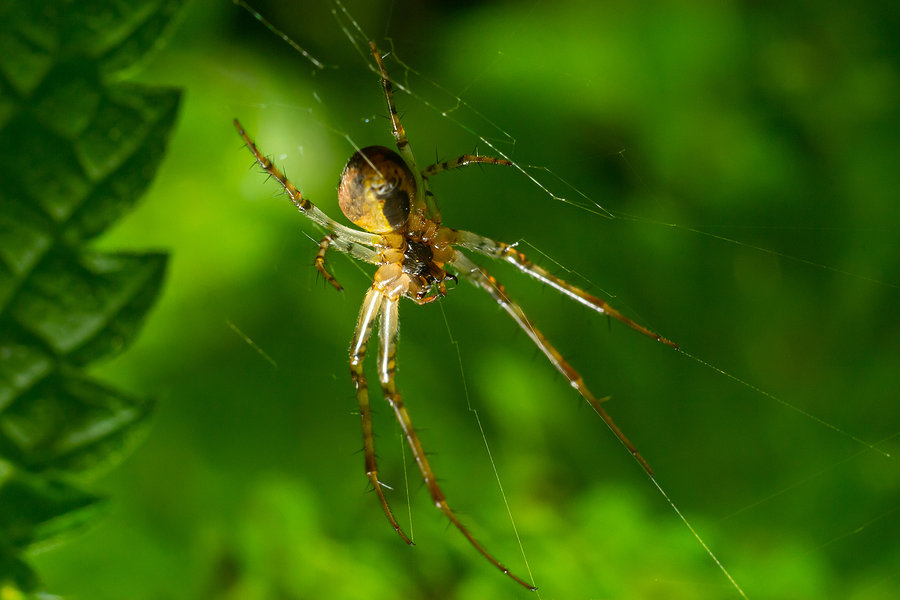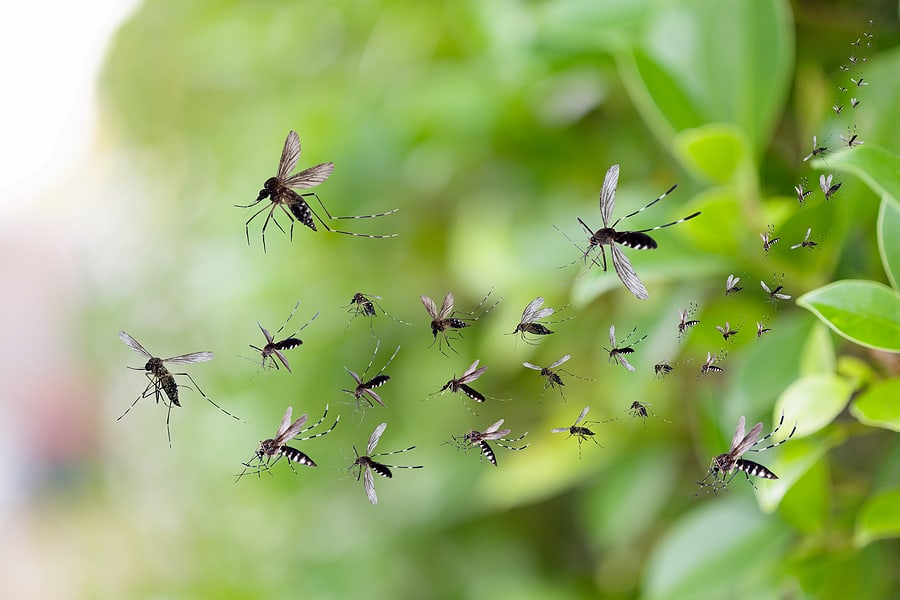READY TO GET STARTED?
REQUEST A FREE ESTIMATE
Fill out the form below or call (888) 466-7849 for a free, no-obligation estimate.

Ladybugs, with their vibrant colors and delicate appearance, are often seen as harmless garden visitors. However, when these charming insects decide to make your home their own, they can quickly turn from garden allies to household pests. In Georgia, ladybug infestations are not uncommon, and understanding how to identify, prevent, and eliminate these invaders is crucial for maintaining a pest-free home.
Ladybugs, scientifically known as Coccinellidae, are beneficial insects in gardens, feeding on aphids and other harmful pests. However, some species of ladybugs, such as the Asian Lady Beetle, can become unwelcome guests when they invade your living space in large numbers.
Ladybugs are typically small, round beetles with bright red or orange shells adorned with black spots. The Asian Lady Beetle, often mistaken for native ladybugs, can vary in color from yellow to orange and may have no spots or multiple spots. Proper identification is essential for effective pest control.
Ladybugs seek shelter indoors during colder months, making your cozy home an attractive refuge. They enter through gaps, cracks, and openings around windows, doors, and other entry points. Once inside, they can congregate in large numbers, creating a nuisance for homeowners.
If you find yourself facing a ladybug invasion or any other household pest issue, don’t hesitate to reach out to our expert pest control team. We offer free quotes and personalized solutions to keep your home pest-free.
Ladybug infestations may seem harmless at first, but they can quickly become a nuisance if left unaddressed. By understanding their behavior, implementing preventive measures, and seeking professional help when needed, you can ensure a ladybug-free home in Georgia. Take the first step towards a pest-free living space by requesting a free pest control quote today.

Centipedes, with their numerous legs and speedy movements, are not exactly a welcome sight in any home. As common household pests, centipedes can be a nuisance, but understanding what attracts centipedes to your home is the first step towards effective pest control. In this blog post, we’ll delve into the basics of centipedes, how they find their way indoors, signs of infestation, and crucial tips for prevention and elimination.
Centipedes are arthropods belonging to the class Chilopoda. Despite their name, centipedes do not have a hundred legs; the number varies depending on the species but typically ranges from 15 to 177 pairs. Known for their long, segmented bodies and swift movements, centipedes are carnivorous, preying on insects and spiders.
Centipedes are attracted to homes for several reasons. Understanding these factors can help you take proactive steps to keep them at bay.
Identifying a centipede infestation early is crucial for effective pest control. Look out for the following signs:
Don’t let centipedes take over your home. Take proactive steps and ensure a pest-free living environment. Our expert pest control team in Georgia is ready to assist you. Request a free pest control quote today and enjoy the peace of mind that comes with a centipede-free home.
Remember, early detection and preventive measures are crucial in keeping centipedes and other household pests at bay. With the right approach, you can enjoy a comfortable and pest-free living space in Georgia.

Silverfish are a prominent pest found in most Florida neighborhoods, including Hialeah. They typically show up in homes that offer high humidity and moisture, which is the perfect environment for these pests. These creatures aren’t harmful to humans but can become a nuisance if they infest your home.
These brown-gray to bluish-silver colored pest can get up to ½” in length and have six legs and an elongated body. They are known to rapidly move with fish-like movements and do not have wings.
You will typically find these pests in bathrooms, usually in the sink, bathtub, or crawling along the floor near a wall. They can survive a year without food but need humid temperatures and moisture to survive. Paper and photos make an ideal meal for these pests, but starchy substances like carpet glue, book bindings, wallpaper, plaster, and some paints will also attract these creatures.
Other than spotting silverfish themselves, there are various signs that these pests have infested your home. Pay attention to their feeding marks, these can look like holes, notches along an edge surface, or surface etchings. Here are some steps you can take to prevent these pests:
They prefer to live in areas that offer 75-95 percent relative humidity, which is not uncommon in South Florida. Air conditioners and dehumidifiers are vital for making your home environment less attractive to silverfish.
Silverfish and other pests like to hang out in cardboard boxes, so utilizing plastic bins for storage is a good way to prevent silverfish and other pests.
If you’re having issues with silverfish in your Hialeah, FL home, call your local pest control company today to request a free inspection.

The thought of spiders in your home is enough to make anyone feel a little unsettled, but these household pests are actually beneficial to have around. They are a natural form of pest control, keeping other pest populations like mosquitoes and flies under control in and around your home. Although there are a few venomous spiders found in our area, most others are harmless and don’t pose a threat to you or your family. While it’s not realistic to expect to eliminate every spider from your home, you can make it less inviting for them to help keep them out without the use of harsh chemicals or pesticides. Here are 7 natural spider control remedies you can use around your home.
There are several plants you can place inside and outside your home to naturally deter spiders from coming around. Lavender, mint, eucalyptus, and citronella are known to deter spiders from building their webs near them. If incorporating these plants into your landscaping isn’t a possibility, you can also spray essential oils with these scents, in addition to peppermint or tea tree oil, anywhere spiders are a problem. You can also crush mint and place it in sachets inside your cabinets or other areas where spider activity is high.
Spiders are masters of hide and seek. They can be found hiding in cracks, crevices, cabinets, knotholes, behind baseboards, inside seldom used items in your home (such as shoes), under rocks, in woodpiles, and under piles of leaves and dirt. By getting rid of these hiding places you can encourage spiders to seek shelter somewhere besides in your home. Move leaves, grass clippings, compost and woodpiles away from your exterior walls. Dust and declutter your home on a regular basis. Frequently dust any areas where cobwebs appear. Organize your storage areas and get rid of any empty boxes.
Spiders spin webs to trap their prey as a food source. If you come across spider webs either inside or around your home, remove them as soon as possible. Eventually the spiders will move on and build their webs somewhere else.
While spiders aren’t attracted to your outdoor lights, other pests that they feed on are. Mosquitoes, flies, gnats, and other common prey for spiders are drawn to your outdoor lights, providing a literal buffet for a waiting spider. Keep your outdoor lights off as much as possible to help cut down on your outdoor pest populations.
Diatomaceous earth is a crumbly material made of the fossilized remains of an algae called diatom. DE can be sprinkled on the ground around your home and used as an insecticide. DE kills several pests in addition to spiders and can be used around your family and your pets.
There are some organic substances that work as natural repellents for spiders. Vinegar is a common one. The acetic acid in vinegar gives a sour taste and odor to spiders who come into contact with it. Mix equal portions of vinegar and water in a spray bottle and spray it around your home, especially in areas where pests may be getting inside. Citrus is also a natural spider deterrent. Keep citrus fruits in a bowl on your kitchen counter and use the leftover peels to rub onto your windowsills and doors to help keep spiders out.
Spiders can get in through the tiniest cracks and crevices in your home. Make sure to regularly inspect the exterior of your home and seal any places where pests might be gaining entry inside. Be sure to check doors and windowsills and use caulk or weatherstripping to seal any cracks and openings.
While most spiders don’t cause any problems in your home, they can become a nuisance, especially in your yard or garden. Webs can be built in inconvenient places; they can cover your plants or hide blooms, stunting their growth. If you have a problem with spiders or need some help getting them under control, contact your local pest control company for an evaluation.

Spring brings new life, warmer weather, and pests! Because of the spring weather, household pests such as ants, roaches, mosquitoes, termites, rodents, and other pests emerge from hibernation in search of a food source and a place to nest. Now is the ideal time to prevent these pests from multiplying. Check out our tips for spring pest control!
Pests can enter your home through the smallest crack, crevice, or hole. Examine the exterior of your home for these areas, including the foundation, pipes, windows, doors, and HVAC units. Cockroaches, rodents, wasps, ants, and other pests will gain entry and cause a variety of problems in your home. Seal any openings with caulk if you find them. Consider using a sweep to seal the gap between the floor and the door for doors. Use screens on doors and windows and keep them in good condition.
Warmer weather and standing water will attract pests such as mosquitoes and roaches to your property. Standing water attracts pests and allows them to multiply and thrive, so it is critical to remove it. Check for leaks on the outside and inside of your home. Pests can be attracted by dripping faucets and loose fixtures. Remove any items in your yard that could collect water, such as flowerpots, old tires, tarps, toys, and so on. Consider enclosing your crawlspace to help control moisture and temperature inside your home.
Many pests will use our firewood to make their way into our homes. Keep your woodpiles at least 20 feet away from your house. To prevent termites and roaches from living in them, consider placing them in plastic containers with lids and elevating them off the ground. Inspect it for pests and brush them off before bringing it inside.
Starting your spring cleaning early could help keep pests at bay! Consider starting at the ground floor and working your way up to declutter your home. Clean the floors, dust, sweep, mop, vacuum, and empty your closets and drawers of unnecessary items. Remove old newspapers and cardboard boxes from storage, as these can attract rodents looking for a nesting site. Remove old tree stumps, twigs, and other debris from your yard. Similarly, rake up all the leaves and keep mowing on a regular basis.
Mice and rats are looking for food and have infiltrated our kitchens to find it. It is critical to clean your kitchen and store leftover food safely. Wipe down your counters after each meal and clean up any leftover crumbs or spills. Sweep and mop your kitchen floors on a regular basis, and don’t forget to clean under your appliances. Use trashcans with lids to dispose of your garbage on a regular basis. Make use of airtight containers when storing food.
While following these spring pest control tips can help keep bugs out of your home, it is sometimes necessary to call a professional for extra protection. Your local pest control company can inspect your home, identify potential pest sources, and recommend a pest control and prevention strategy.